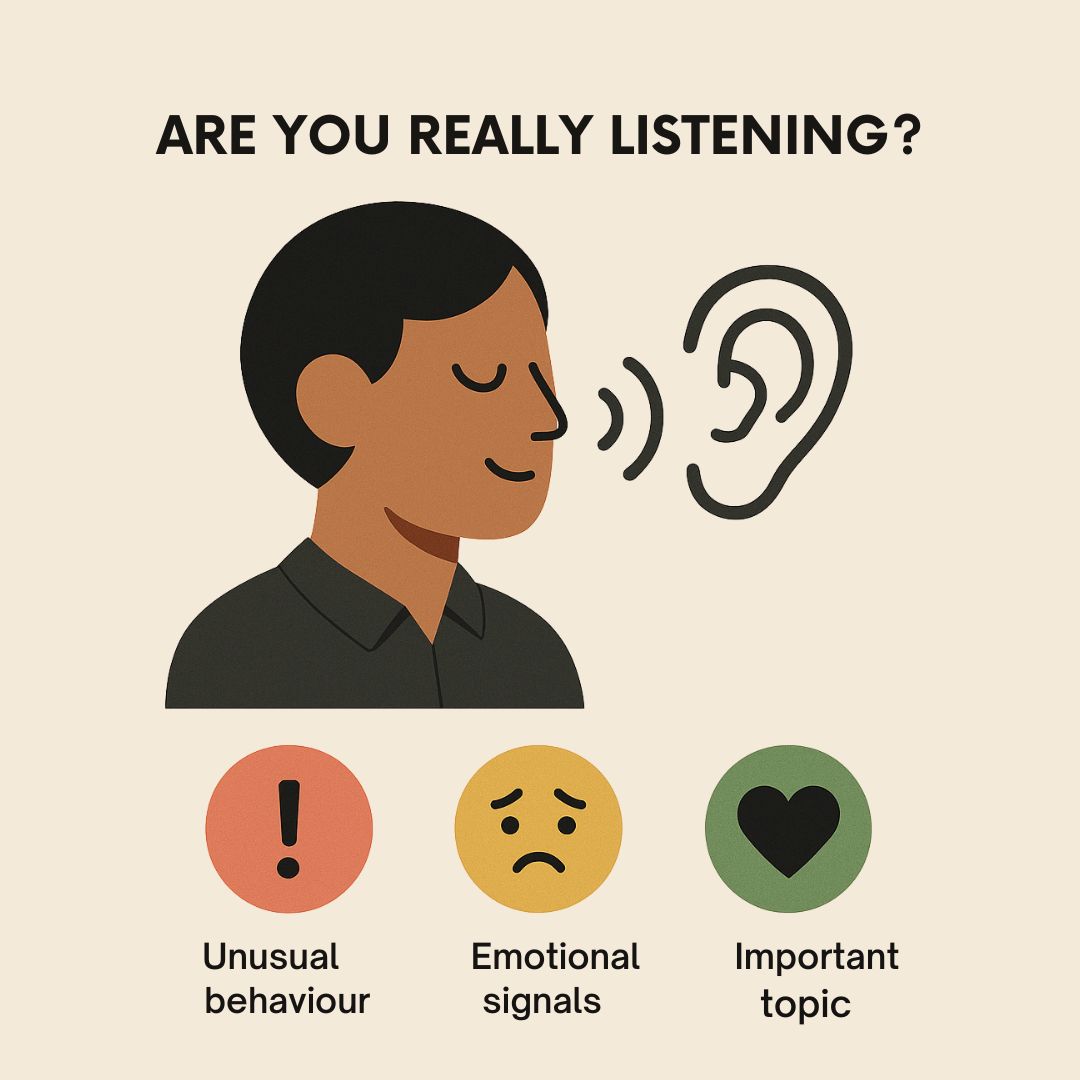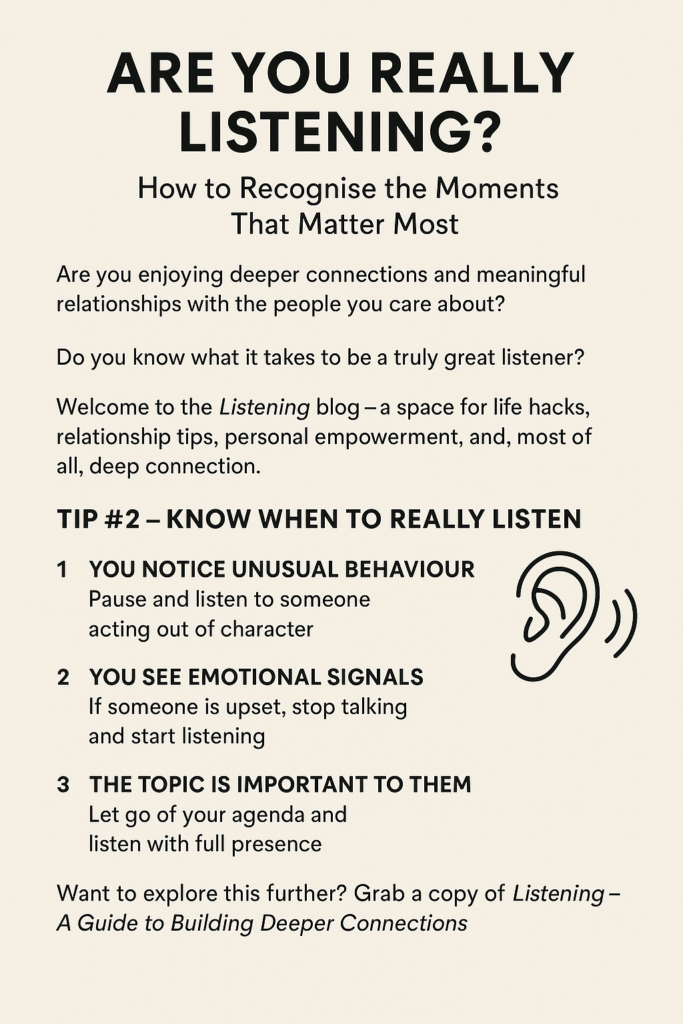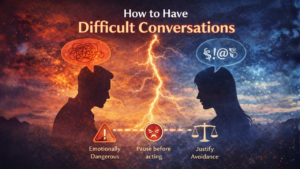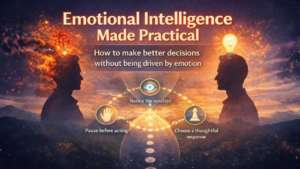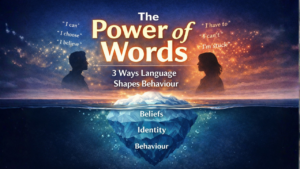How to Recognise the Moments That Matter Most
Are you enjoying deeper connections and meaningful conversations with the people who matter most?
If you’re like many people, your listening awareness may not be as strong as you think. We often assume we’re good listeners—especially in professional settings—but personal relationships require a different kind of presence. One grounded in empathy, emotional intelligence, and intentional attention.
This post explores what it means to listen with intention, and how recognising key emotional cues can help you connect on a deeper level.
Listening Isn’t Just a Skill—It’s a Signal of Connection
There are moments in life when someone close to you doesn’t just want to talk—they need to be heard. They may feel anxious, frustrated, or emotionally vulnerable, but instead of expressing those feelings directly, they’ll often circle around the issue.
This is the time to stop speaking, lean in, and be fully present in the conversation.
These moments don’t call for problem-solving or storytelling. They call for one thing: understanding. This is where your deeper listening skills come into play.
Welcome to the Listening Blog
This space is inspired by Listening – A Guide to Building Deeper Connections—and it’s built around the idea that active listening in Australia, and anywhere, starts with intention. Whether you’re a leader, partner, parent, or friend, these tips will help you improve how you show up and connect.
Tip #2: Know When to Really Listen
“We use the word ‘listening’ as though it’s a constant that never changes… but your reason for listening, or the way you listen, will change depending on the situation or context.”
— Listening – A Guide to Building Deeper Connections
You might be a great communicator at work, using all the tools of leadership communication—but in personal moments, especially emotional ones, those same habits might fall short.
Here’s how to recognise when someone needs more from you than just a reply:
Three Signs It’s Time to Deepen Your Listening
1. You Notice Unusual Behaviour
When someone close to you starts acting out of character—withdrawn, irritated, distracted—that’s a sign something’s off. Instead of pushing forward with your own agenda, pause. Their change in behaviour is often a quiet invitation to listen.
2. You See Emotional Signals
Tears, silence, frustration, or anger are not problems to solve—they are emotions to honour. This is your moment to listen with emotional intelligence: say less, hold space, and give them your full attention.
3. The Topic Is Important to Them
Even if it feels minor to you, if it’s meaningful to them—it matters. This is where presence in conversation truly shows. Let go of distractions and give them the respect of your complete focus.
Intentional Listening in Leadership and Life
You won’t always be able to listen deeply—it’s impossible to do 24/7. But when the moment does matter, you want to be ready. These moments—at work, at home, or with friends—are where trust is built and relationships are strengthened.
In fact, leaders who master intentional listening and foster active listening awareness build stronger teams and more connected cultures. That’s why it’s such a critical element in leadership communication and emotional intelligence training.
Want to Explore This Further?
📖 Grab a copy of Listening – A Guide to Building Deeper Connections – available in paperback, eBook, or audiobook.
🎧 Book a personal coaching session here
📬 Subscribe to the Team Focus newsletter for leadership development insights.
Final Thought: Listening Is a Gift
The next time someone comes to you—especially when they’re unsure, uncomfortable, or overwhelmed—ask yourself: Am I really listening?
Because when you listen with intention, you give people something rare and powerful: the feeling of being truly understood.
That’s the kind of gift that changes everything.
Because listening well isn’t just a skill—it’s a gift.

